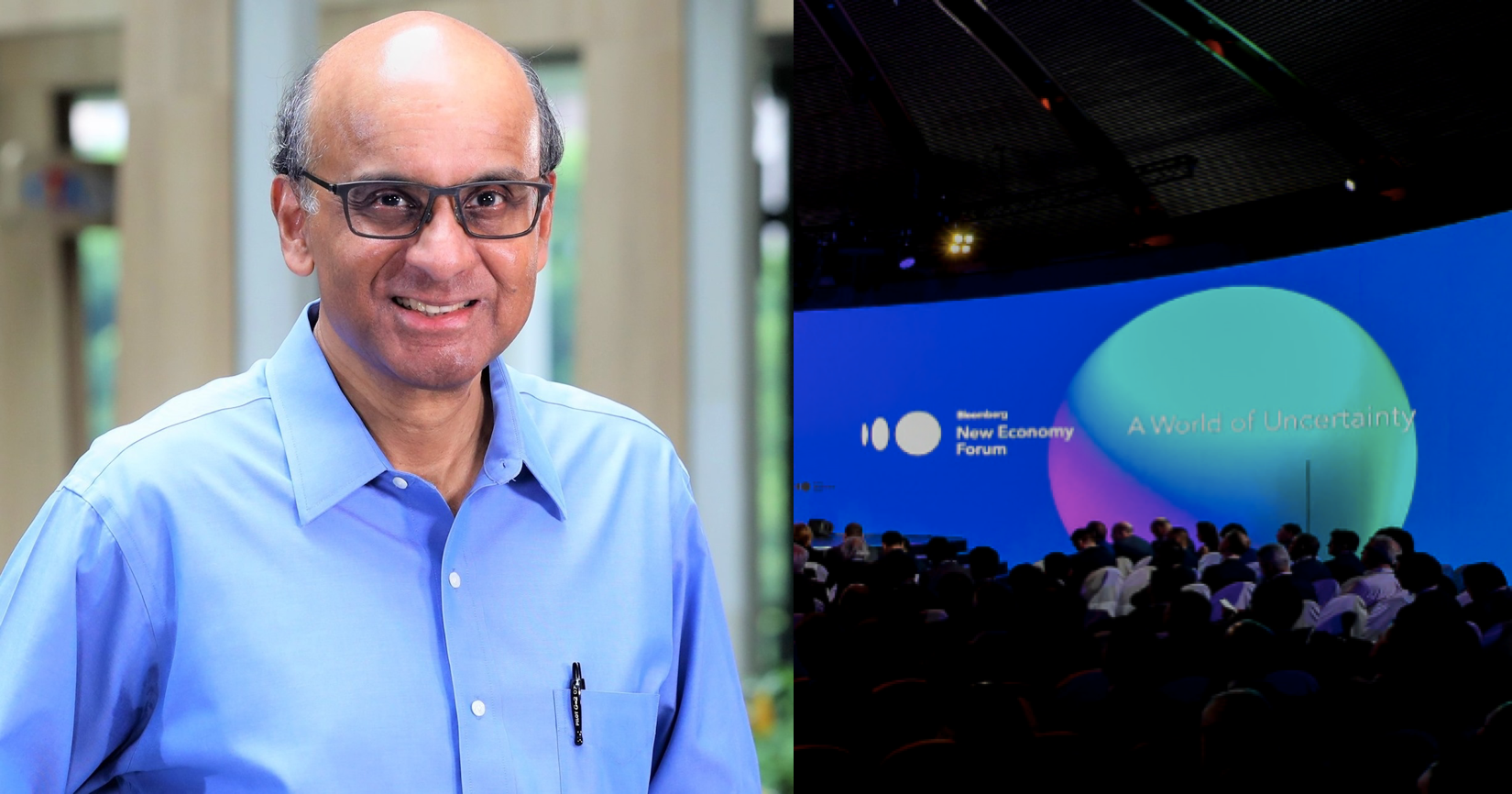Senior Minister Tharman Shanmugaratnam has a blunt answer for supporters of the Universal Basic Income (UBI) policy.
The short answer -- he thinks it's a bad idea.
The Coordinating Minister for Social Policies was speaking as part of a panel at the Bloomberg New Economy Forum on Nov. 16, which included industry titans like McDonald's CEO Chris Kempczinski and Ginni Rometty, executive chairman of IBM.
Other than the issue of UBI acting as a disincentive to work, which Tharman believes is still an "open issue", he believes that UBI is bad because it is regressive and would require higher taxes.
"Regressive"
The UBI policy is simple. Every citizen of a country will receive a guaranteed minimum amount of income with "no strings attached".
The idea is not new, originating in the 16th century and surfacing in various proposals over the years.
Recently, Finland conducted a UBI trial for a small group of citizens.
To help pay for the cost, UBI could substitute for some aspects of a country's welfare system, or even replace it entirely.
But Tharman's first objection is that he feels UBI would be regressive.
He said:
"The idea of giving everyone (the same) quantum of money is very different from giving the poor and the lower-middle income group the support they need.
Many proponents of UBI have proposed it as a way of flattening the system of benefits. I don't think that's a good idea. I think we need to stack the benefits in favour of the poor and the lower-middle income group, not give them less."
"Higher taxes"
Tharman's second objection is that in order to ensure the needy get enough money, the UBI system would mean that everyone else would receive the same amount too.
And this would have to be paid for with higher taxes.
He added:
"Secondly, to give the poor what they need through UBI, you've got to give everyone that same higher amount. In other words, you don't just flatten the curve but you’ve got to raise the curve.
That needs much more taxes. And if we do the arithmetic, it can't just be taxes on the rich. You need much more taxes on the middle income group in order to give everyone the amount of benefits that the poor actually need. And I don't think that's a good idea for many reasons."
Robot revolution
The UBI topic was a talking point during the U.S. presidential campaign.
One of the Democratic candidates, Andrew Yang, was vocal about his belief in the necessity of UBI.
Yang called it a "freedom dividend", and explained that the reason why he was pushing for the policy is that he fears the increasing pace of automation would leave many Americans jobless.
Yang explained the rationale on his campaign website:
"In the next 12 years, 1 out of 3 American workers are at risk of losing their jobs to new technologies -- and unlike with previous waves of automation, this time new jobs will not appear quickly enough in large enough numbers to make up for it. To avoid an unprecedented crisis, we’re going to have to find a new solution, unlike anything we’ve done before."
Invest in the future now
Tharman acknowledged this argument, perhaps dismissively attributing it to "techno pessimists".
But he feels that more action could be taken in the short term to avert such a crisis in the first place.
"We might get to that situation, but we have no idea whether we will. More importantly, whether we get there, 20 or 30 years from now, depends on what we do now. And the last thing we should do is to give up hope and go for purely redistributive strategies.
We do need redistribution. But what we should be doing now is investing in public goods, investing in public school systems the way Ginni was talking about, and I'm quite optimistic about that potential."
Tharman also mentioned that public investment creates a more optimistic mood, as people can see that governments are acting to benefit them.
Tharman added: "It's far better than talking about UBI and passive strategies. Let’s talk about how we can do things to develop capabilities, develop hope and aspirations. If we lose the game in 20 or 30 years’ time, we can start talking about UBI, but we first have to get started. We haven't gotten started in many countries."
Related story:
Top image from Bloomberg New Economy Forum and Tharman Shanmugaratnam's Facebook page.
If you like what you read, follow us on Facebook, Instagram, Twitter and Telegram to get the latest updates.

